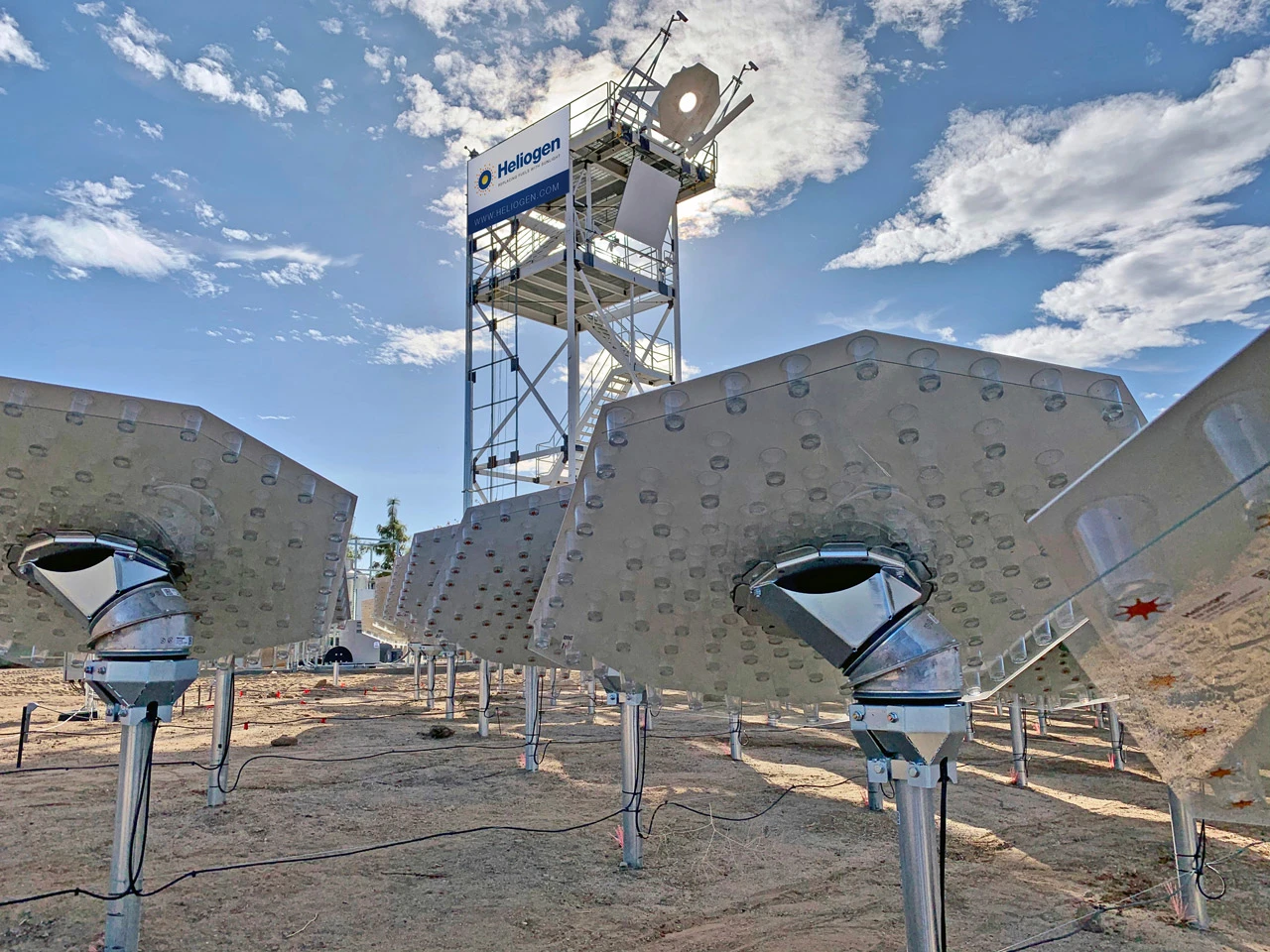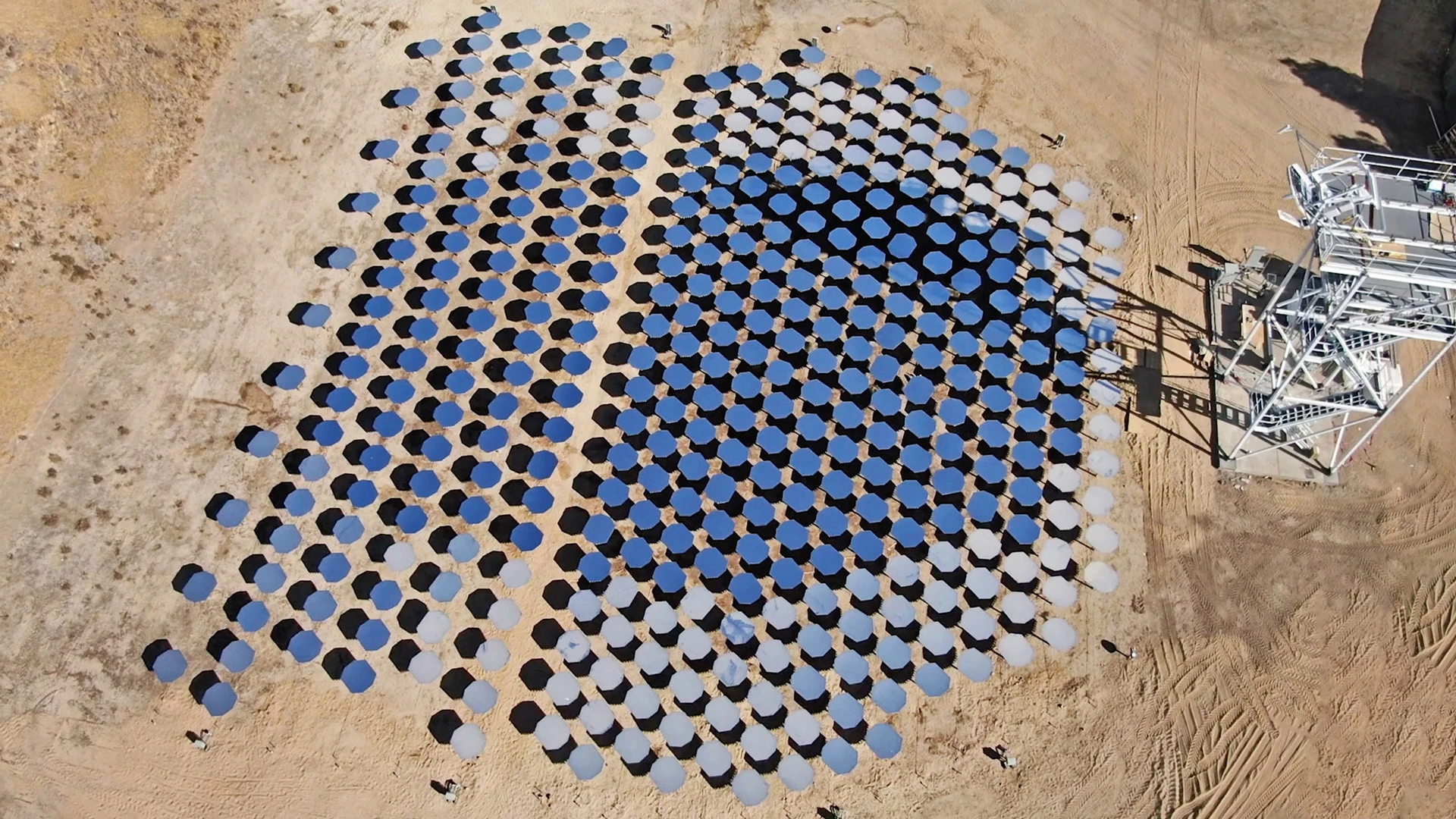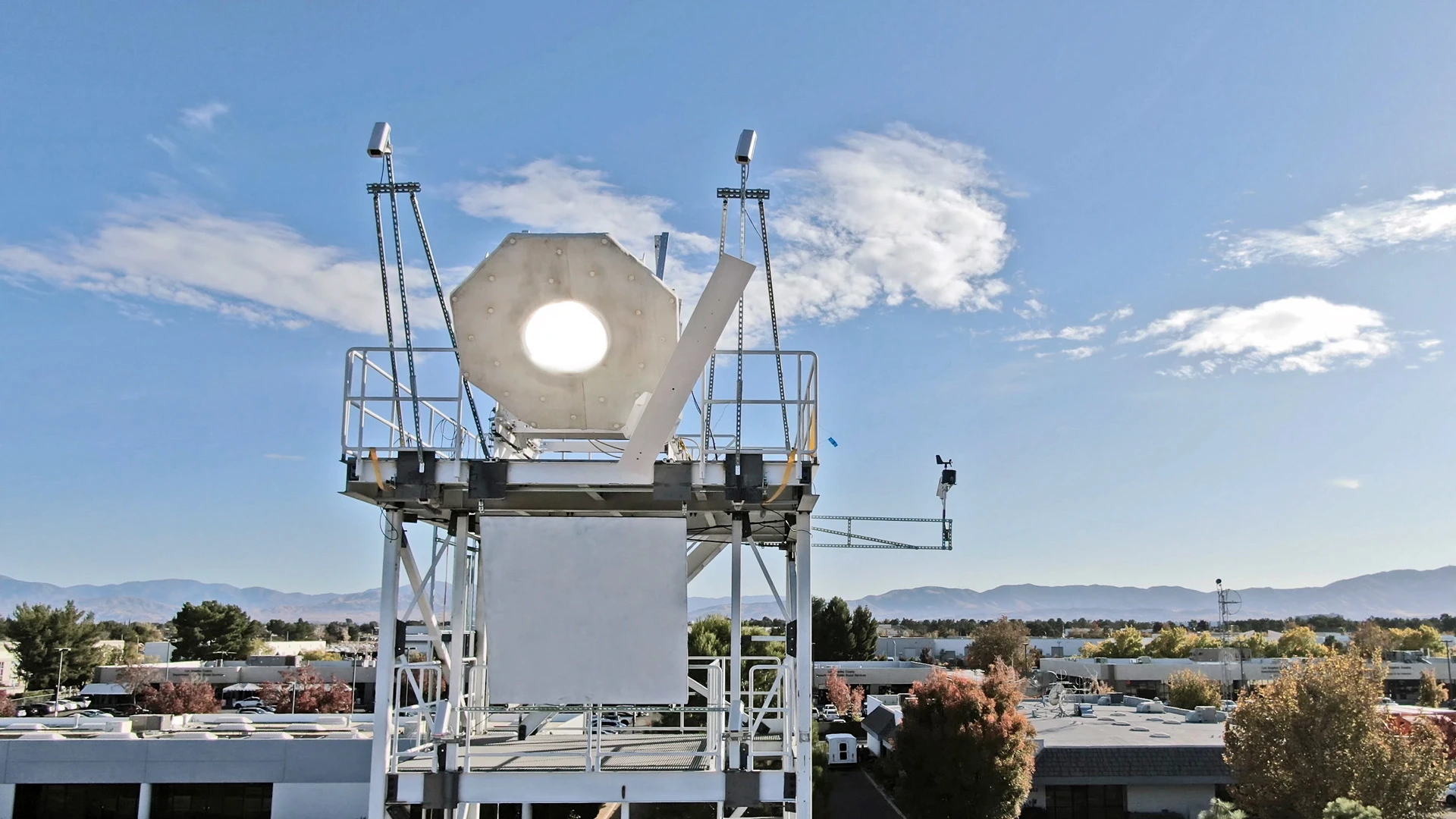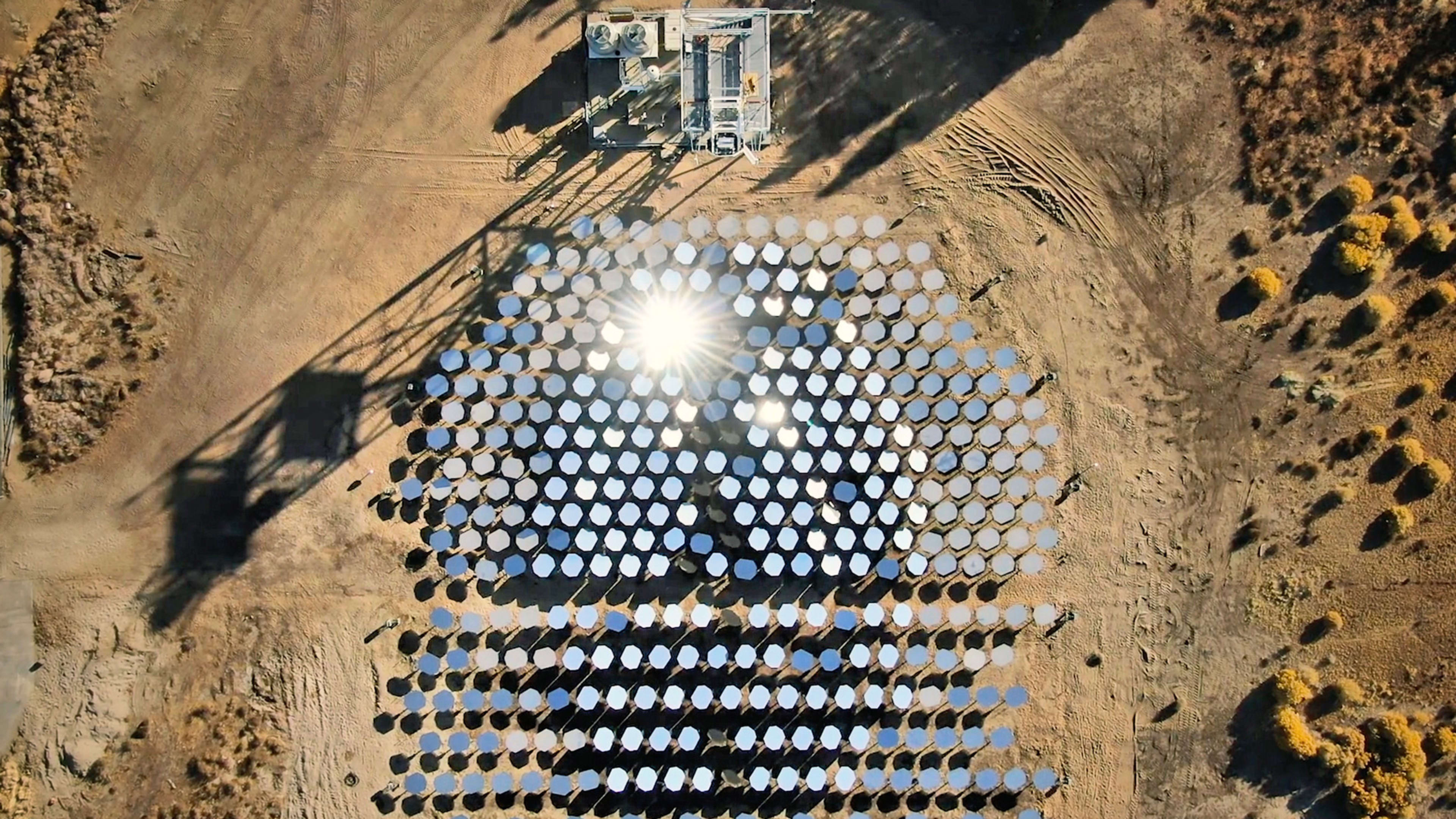A typical large steel mill might burn through 1.5 million metric tons of coal in its furnaces in a year. It hasn’t been possible to run that type of industrial process on renewable energy, because of the extremely hot temperatures required, making nearly a quarter of global emissions hard to eliminate. But new technology—which concentrates solar thermal energy to 1,000 degrees Celsius for the first time—could transform some of the most polluting industries, including steel, cement, and petrochemical production.
The technology, from a California-based startup called Heliogen, uses an array of mirrors to reflect sunlight. That’s not new, but the approach that it uses nearly doubles the amount of heat that previous solar thermal tech could produce. “It’s a little bit like an enormous magnifying glass, but it’s an enormous magnifying glass that’s computer-controlled,” says Bill Gross, founder and CEO of Heliogen.
In the past, mirrors couldn’t direct light as precisely, but computer vision and image processing have improved that process. “We have a series of high-resolution cameras look at a whole field of mirrors, and have all of them be pointing very precisely by looking at the position of the mirrors in real time. And that has never been done before.”

In the past, the hottest achievable temperature for this kind of solar tech was around 575 degrees Celsius. But many industrial processes—such as forming cement or steel—requires kilns with temperatures of at least 950 degrees, something that plants currently accomplish by burning dirty, cheap fuel such as coal, peat, or even tires and trash. Regular solar power wasn’t really a solution; a factory might put solar panels on the roof to provide some electric power, but the vast majority of its operations couldn’t shift to renewables. “It’s extremely inefficient to turn sunlight into electricity and then back into heat,” says Gross. “But it’s very efficient to just take sunlight, concentrate the heat, and use that heat directly.”

The startup—which just got an investment from Bill Gates—now plans to begin working with industrial partners in sunny locations, installing its equipment adjacent to plants to provide heat that can replace massive amounts of fossil fuels, though at night, when the sun isn’t shining, plants will still use fuel.
“Even just by cutting fuel use during the daytime, we can make an enormous impact on reducing their CO2,” Gross says. “Some of these companies are looking for ways to cut their CO2 emissions by 1%, 2%, 3%. And if we come along and put our [equipment] next door and run during eight hours of the day, we cut it by 33%.” At a large scale, the technology could have a major impact on the world’s emissions; cement production alone is responsible for around 8% of total CO2 emissions, more than the total emissions of any country other than the U.S. and China.

If companies buy the equipment outright, the payback period will be around two to three years. Companies can also choose to have Heliogen install and run the equipment and just pay for the energy provided, at a lower cost than they were paying for fossil fuels. Companies want to change, Gross says. “When we talk to people like the net companies and steel companies, they all care about their emissions,” he says. “They know that they’re part of the global climate change problem, but they haven’t been able to do anything about it because putting a few PV panels on the roof will cut their electric lighting bill, but they use a hundred times more energy in burning fossil fuels for heat than they use electricity. So they needed something else. We provide that.”
Recognize your brand’s excellence by applying to this year’s Brands That Matter Awards before the early-rate deadline, May 3.
